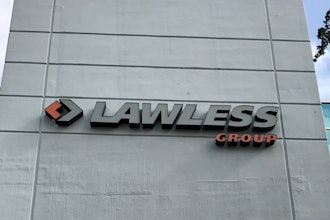
For most of us, sharing pictures, video clips, music, and memes online with friends (and potentially millions of others) has become almost second nature. And in our social media and personal lives, we usually don’t give a second thought to copying, pasting, and posting online content created by others. But if an employee at your distribution business carries this carte blanche attitude into the workplace and posts or uses others’ copyrighted material on your company’s behalf – on your website, social media posts, advertising, or other marketing efforts – the damages could pile up faster than clicks on a viral video.
That is because the billions of photos, videos, and other creative works available with a mouse click are someone else’s intellectual property. And using such content for commercial purposes without the creator or owner’s consent constitutes copyright infringement. Such claims can cost a business tens or hundreds of thousands of dollars, even if the infringement caused no actual harm to the copyright holder.
Copyright Law and Online Content
That vacation photo you took and posted on Facebook – you own the copyright to it. The same goes for any video you created and uploaded to TikTok, Instagram, or elsewhere on the internet. Similarly, your company holds the copyright to images, videos, and other content created by employees for business purposes. This is the case even if you or your company haven't registered your copyright with the United States Copyright Office or affixed a © symbol or words such as "copyright-protected material" along with the content.
The creator or author of a creative work - such as a book or article, movie, music, painting, or photograph – holds a copyright to that work the instant they put it in tangible form. Even without registration, a copyright owner has the right to control how their work is used and who uses it.
This includes the right to stop others from reproducing or distributing the work or creating a "derivative work," such as altering a copyrighted image or video. If a photographer came upon one of their photos on your company's website or elsewhere, they would have a valid claim for copyright infringement against your company. Importantly, an infringer’s state of mind or intent when uploading or sharing the content doesn’t matter. So, an employee who argues they didn’t know they were infringing on a copyright will not protect the company from liability.
Damages Against Your Company Even Without Damages To The Copyright Holder
While a creator holds a copyright just by virtue of being a creator, registering a photo, video, music, or other creative work with the Copyright Office provides the owner with additional legal rights and remedies. The copyright owner can sue to recover any actual damages or losses they incurred due to the infringement, a sum that can be enormous if the protected content was reproduced and seen hundreds or thousands of times. But a registered copyright owner can also elect to recover damages without the need to show that they suffered any damages at all.
In lieu of proving actual damages, the copyright owner can seek to recover "statutory damages" from $750 to $30,000 per violation, along with their attorneys' fees. If a court finds that the infringement was willful, it can award statutory damages of up to $150,000 per act of infringement.
Too many businesses use copyrighted images and content without permission because they lose sight of the laws or, even worse, think the odds of trouble are infinitesimal. After all, what are the chances of a copyright holder visiting, much less becoming aware of, say, an distributor's website and seeing his/her/its content there?
The chances are pretty good, actually. Cheap and widely available software can quickly search the internet to find infringing images. Since a successful plaintiff can recover attorney’s fees from an infringer, many law firms will pursue statutory damage claims on a contingency basis, meaning that a creator has every incentive to pursue the infringer.
Businesses need to be aware of these risks and ensure that their employees understand the rules of the road regarding copyright infringement and the unauthorized use of copyrighted material. This can be done by creating policies regarding the use of images or other content and/or purchasing images and graphics from credible stock photo sites such as Adobe Stock or iStock by Getty Images.
If you have questions or concerns about copyright infringement for the use of online content, please contact me at 312-840-7004 or [email protected].
The information contained in this article is provided for informational purposes only, and should not be construed as legal advice on any subject matter. The author expressly disclaims all liability in respect to actions taken or not taken based on any or all the contents of this article.






















